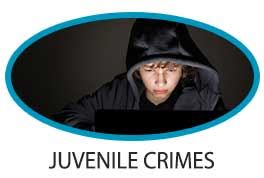
As children grow up, they will make mistakes. In order to learn and grow, this may be necessary. For parents, there are different ways they can discipline their children to show that their behavior is not acceptable. If their behavior goes beyond the normal deviant behavior and they subject themselves to criminal charges, they may be tried as a juvenile. If the court escalates their case, they may even be tried as an adult. These cases may include serious consequences for the juvenile that could ruin their future. As a parent, it is important to get your child the help that they need.
How are juveniles classified?
In New York state, juveniles are all those under the age of 16. They must be at least 7 years old to be tried as a juvenile. All those individuals over the age of 16 will be tried as an adult. If the child was 16 or younger when the crime was committed, then they may be charged as a juvenile. When a child is defined as a “juvenile delinquent,” it means that they need supervision, treatment or confinement. This could mean that they are more dangerous than other individuals who are classified as a juvenile. It could also be attributed to the mental state of the child.
How do juvenile cases proceed?
Juvenile cases are not done in a regular courtroom setting. These cases are heard in family court. When a juvenile is detained, a prosecutor will file a petition against the child. This will include the details of the allegations that are being made against them. The family court trial is also known as a fact-finding hearing. There is no jury but there is a single judge. The judge will act and make the decisions by themselves. If they find that there is a lack of evidence, they may decide to dismiss the case. If they find that there is evidence to support the allegations being made, a dispositional hearing may be made. The judge may then order a probation department to investigate the juvenile’s home and school behavior.
Furthermore, the judge has the authority to order an evaluation of the child’s mental health. They can summon the city’s mental health services to do so. The decision of the court may detain a child or sentence them to parole in the custody of their parents. This may be until there is a dispositional hearing where the judge will further decide if the child is considered a delinquent or if they will be released to a guardian.
Kevin T. Conway has over 30 years of experience as a Spring Valley criminal attorney handling DUI, DWI, traffic violations, violent crimes, sex crimes, illegal gun possession, shoplifting, and juvenile crimes. Attorney Conway is also experienced in commercial law matters, zoning law, and estate planning. If you need a Rockland County criminal lawyer, contact our Spring Valley office for a free consultation.
© 2025 The Law Office of Kevin T. Conway. All rights reserved.